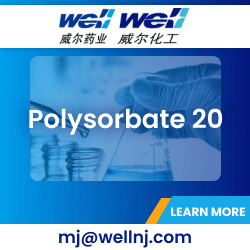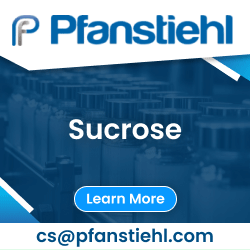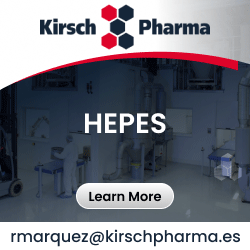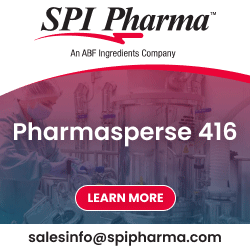Overview of dry-powder inhalation capsules, including hypromellose capsules and two-piece gelatin capsules, for nasal & pulmonary drug delivery.
Q1. What are inhalation capsules or dry powder inhalation capsules?
The use of hard capsules or dry powder inhalation capsules in Dry-Powder-Inhalers (DPIs) has become a well established method of dosing medicines into the lungs, so much so that their use has expanded well beyond Europe, where these inhaled solid dosage forms originated.
Inhalation dosage forms refer to any inhalation preparations taken via the nasal or respiratory route of administration. These dosage forms are intended to deliver drug substances to the lungs and affect pulmonary function or treat allergic symptoms in the respiratory tract.
Pharmaceutical products for inhalation routes of administration include both solid and liquid dosage forms. Liquid inhalation formulations are constituted of solutions or suspensions and are delivered to the lungs via metered dose inhalers (MDI), nebulizers, etc. On the other hand, inhalation solid dosage forms consist of dry powders and are delivered to the respiratory system through dry powder inhalers (DPI), rotahalers, spacers, etc.
Inhalation solid dosage forms - Dry powders:
- Powders are dry, free-flowing formulations of pharmaceutical products, which can be used internally and externally (e.g., external applications to the skin). Dry powders can be taken orally by some patients who are unable to swallow other oral solid dosage forms such as tablets. Dry powders can further be prepared for inhalation by spray-drying or micronization of a powder blend consisting of the drug and a suitable inert carrier.
Some inhalation devices use inhalant capsules, dry filled capsules containing powder concoctions, that elicit desired therapeutic effects. Inhalers that utilize such specialty capsules (inhalant capsules) are called capsule-based dry-powder-inhalers (DPI).
A dry powder inhaler (DPI) is a breath-actuated device that delivers drugs in the form of particles contained in an empty hard gelatin capsule, empty HPMC capsule (polymer capsule), or blister that is punctured prior to use.
The dry filled capsules are premetered, the filling of capsules is done with previously measured amounts of powder, for dose uniformity. Furthermore, designed as functional inhalation capsules, dry filled specialty capsules contain less than 5% residue of medicine on the inner wall of the capsule, thus enhancing the efficacy of the medicine taken.
Inhalation technology for nasal and pulmonary drug delivery continues to grow, driven by the prevalence of respiratory diseases, especially chronic obstructive pulmonary disease (COPD). For inhalation capsule manufacturers (or empty capsule manufacturers), capsule-based DPI technology provides greater freedom to innovate and differentiate their products whilst benefiting from straightforward development, speed to market and efficiency in later manufacturing.
In addition, capsule-based DPIs meet the practical requirements expressed by patients whilst ensuring effective treatment delivery. Capsule-based dry powder inhalation technology and the different types of capsules used for inhalation drug delivery are explored in detail in the subsequent answers.
Q2. Who are the leading inhalation capsule manufacturers in the industry?
There are copious inhalation capsule manufacturers offering inhalant capsule services such as formulation and manufacturing. However, the leading inhalation capsule manufacturers specializing in dry-powder inhalation capsules are:
Capsugel
Capsugel is a pharmaceutical empty capsules manufacturer that has more than 20 years of experience in hard gelatin capsule manufacturing for inhalation and solid oral dosage forms, amongst other technologies. Capsugel offers a range of empty capsules, including empty hard gelatin capsules and hydroxy propyl methyl cellulose (HPMC) capsules.
Capsugel® Zephyr™ is Lonza’s customizable dry-powder inhalation capsule portfolio that is optimized to provide superior performance and compatibility between the capsule/device and capsule/formulation. Their inhalant capsules are available in gelatin capsules (Coni-Snap® capsules, the world's most popular two-piece hard gelatin capsules) and HPMC (Vegetarian) capsules or HPMC veg capsules (Vcaps® Plus, an immediate-release empty HPMC capsule without gelling agents).
ACG Worldwide
ACG is the largest pharmaceutical empty capsules manufacturer offering end-to-end manufacturing of hard gelatin capsules for the pharmaceutical industry. Their process solutions include filling machines for capsules containing everything from powders to liquids. Additionally, customers get all the support they need to select the right method for the filling of capsules such as pharmaceutical empty capsules, including empty hard gelatin capsule shells and empty HPMC capsule shells.
ACG CAPS™ GI / HI is available in gelatin and hydroxy propyl methyl cellulose (HPMC) capsule shell material options and designed for optimal performance with DPI formulations and various inhalation devices.
Qualicaps
Qualicaps®, is a trusted delivery vehicle for products that promote healthcare. Qualicaps’ technology and product portfolio to complement the needs of solid oral dosage form production include pharmaceutical empty capsules and softgel machines. Moreover, their empty capsule products include Quali-G™, a trusted hard two piece gelatin capsule for oral pharmaceutical applications.
They also offer Quali-V®-I, the first plant-based hypromellose capsules (HPMC veg capsule) to be developed that respond to the particular functional properties required for use in dry powder inhaler (DPI) devices and solid oral dosage forms.
Q3. What is capsule-based dry powder inhalation technology?
Challenges are widespread in the formulation and manufacturing of inhalation dosage form. As a response various solutions for inhaled dosage forms are achieved with the help of innovative inhalation technologies.
Formulations such as inhalant capsules, suspensions, solutions, etc. are delivered to the respiratory tract via drug delivery technologies like aerosols, dry powder inhalers (DPI), metered dose inhalers (MDI), and nebulizers, amongst other devices.
The advantages of inhalation technology:
- Less systemic toxicity
- Rapid onset of medication
- Local drug delivery
- Higher concentration of drug substances to target sites
- Potential of lower dosages & lower costs
- Less wastage of medicines
Dry-Powder-Inhalers (DPI):
The dry-powder-inhaler (DPI) is a leading drug delivery technology for the treatment of respiratory diseases and is also becoming increasingly popular for systemic drug delivery. High dose delivery challenges are overcome by dry powder inhalers (DPI), which can deliver low and high doses of drug products in single or multi-dose configurations.
DPIs are of three types: (1) unit-dose devices, in which an individual dose in a gelatin capsule or blister is loaded by the patient immediately before use; (2) multiple unit-dose devices, which contain a series of blisters or hard capsules; and (3) reservoir devices, in which powder is metered from a storage unit by the patient before inhalation.
Dry powder inhalers (DPI) further enable the drug delivery of inhalation solid dosage forms which overcomes stability issues associated with liquid dosage forms like suspensions and solutions. There are various DPI technologies available within the inhalation category. One such popular, proven and convenient technology is the capsule-based dry powder inhaler (cDPI).
Capsule-based Dry Powder Inhalation Technology:
Capsule-based dry powder inhalation technology is a mature platform which can be bought more or less ready to go. The capsule based DPI is a low resistance device, suitable for use by patients with a wide range of COPD ailments, delivering a consistent dose irrespective of disease severity and age.
Delivery using capsule-based dry powder inhalation technology is fundamentally centered around two basic principles — (1) Greater the quantity of powder leaving the capsule, the higher the efficiency. This is called the emitted dose (ED). (2) Particle size restrictions from 1–5 micrometers, to be able to move along the airways and reach the targeted areas of the lung.
Moreover, capsule-based inhalers belong to the category of dry powder inhalers and work according to a simple two-step procedure. Step (1): Hard capsules or HPMC capsules are punctured or opened by pressing the capsule-based dry powder inhalation technology’s buttons. Step (2): Then, after inspiration, powder is absorbed into the lung pathway
The future development of capsule-based DPIs will have to focus on simplicity of use, reliability, consistency, suitability for a large range of pharmaceutical products and doses, feedback mechanisms to the patients, and last but not least, cost effectiveness.
Some examples of capsule based DPI devices are:
• Aerolizer
• Rotaheler
• ARCUS
• FlowCaps
• DOTT DPI
• Breezhaler
• Aerohaler
• Podhaler
• Redihaler
Q4. What are the different types of capsules used for inhalation drug delivery?
Inhalation technologies include specialty capsules, called inhalation capsules, for dry-powder inhalers (DPI). Some single-unit dose dry powder inhalers require patients to load a single capsule containing the powder formulation into the DPI device before each use.
Due to the ease and availability in the filling of capsules, dry powder inhalers (DPIs) use (1) hard gelatin or (2) hydroxypropyl methylcellulose (HPMC) capsules, a polymer capsule, as pre-metered monodose unit systems.
(1) Hard Gelatin Capsules or Two-piece Hard Gelatin Capsules
Hard gelatin capsules are a modern, solid dosage form for medicinal use, stemming from the increased emphasis on pharmacokinetics found in drug development today. This has considerably expanded the range of possible pharmaceutical products utilising hard gelatin capsules as a simple solid dosage form for drug delivery.
During the hard gelatin capsules manufacturing process, one or more medicinal agents and/or inert materials are enclosed within a capsule shell. Two-piece capsules, unlike softgels, are made of two distinctly colored parts, a body and a cap. The body is first filled with a mix of active ingredients and excipients and subsequently closed with a cap, using either a manual or an automatic press machine.
- While soft and hard gelatin capsules have some similarities, they are two distinct solid dosage forms. Soft gelatin capsules come in round, oval, tubular, etc. one-piece formulations, whereas hard gels are only available in cylindrical, two-piece capsules.
- Soft and hard gelatin capsules, both use plasticizers, coloring agents, sugar, etc. as excipients, but the types and/or amounts that are used vary from one dosage form to another.
The powder filling of hard gelatin capsules with inhalation preparations creates dry-powder inhalation capsules that can be administered through dry-powder-inhalers (DPIs). Hard-shelled capsules, which contain dry, powdered ingredients for inhalation are thus referred to as two-piece hard capsules for dry powder inhalers.
(2) Hydroxypropyl Methylcellulose (HPMC) Capsules or HPMC (Vegetarian) Capsules
While animal bones and hides are conventionally used for the formulation and manufacturing of hard gelatin capsules, now there is a HPMC (vegetarian) capsule alternative. Vegetarian capsules may be produced from cellulose and are called hydroxypropyl methylcellulose (HPMC) capsules. HPMC capsules or vegetarian capsules are made of natural polymers and fibers and may be referred to as polymer capsules.
Empty HPMC Capsules are two-piece capsules made from cellulose raw materials that satisfy vegetarian and cultural needs. These HPMC veg capsules (hypromellose capsules) are an attractive, all natural dosage form that retain all the advantages of hard gel capsules - easy to swallow, effectively mask taste and odor, and allow product visibility. The polymer capsules may also function as time-delayed release capsules because they have the ability to delay drug release from the capsule shell.
Hydroxy propyl methyl cellulose (HPMC) has become a successful alternative material for two-piece, hard gelatin capsules and is used for supplements all over the world. Owing to their low-moisture content, these vegetarian capsules offer a significant advantage over other solid dosage forms.
Future refinements in the production and filling of HPMC capsule shells (hypromellose capsules) and improvement in their in vivo/in vitro dissolution would ensure their superiority over hard gelatin capsules. Hydroxy propyl methyl cellulose (HPMC) capsules filled with powder based inhalation preparations can facilitate drug delivery through dry-powder-inhalers (DPI).
For both HPMC and hard gelatin capsule inhalation technologies, the filling of the capsule shell is composed entirely of dry powder. Inhalation capsules manufacturers, specialized in inhalant capsules, provide a uniform dose in a portable and easy-to-use system. Furthermore, capsule-based DPI devices are a simple and cost-effective method of delivering inhalation capsules and other inhaled dosage forms.
All Suppliers






















